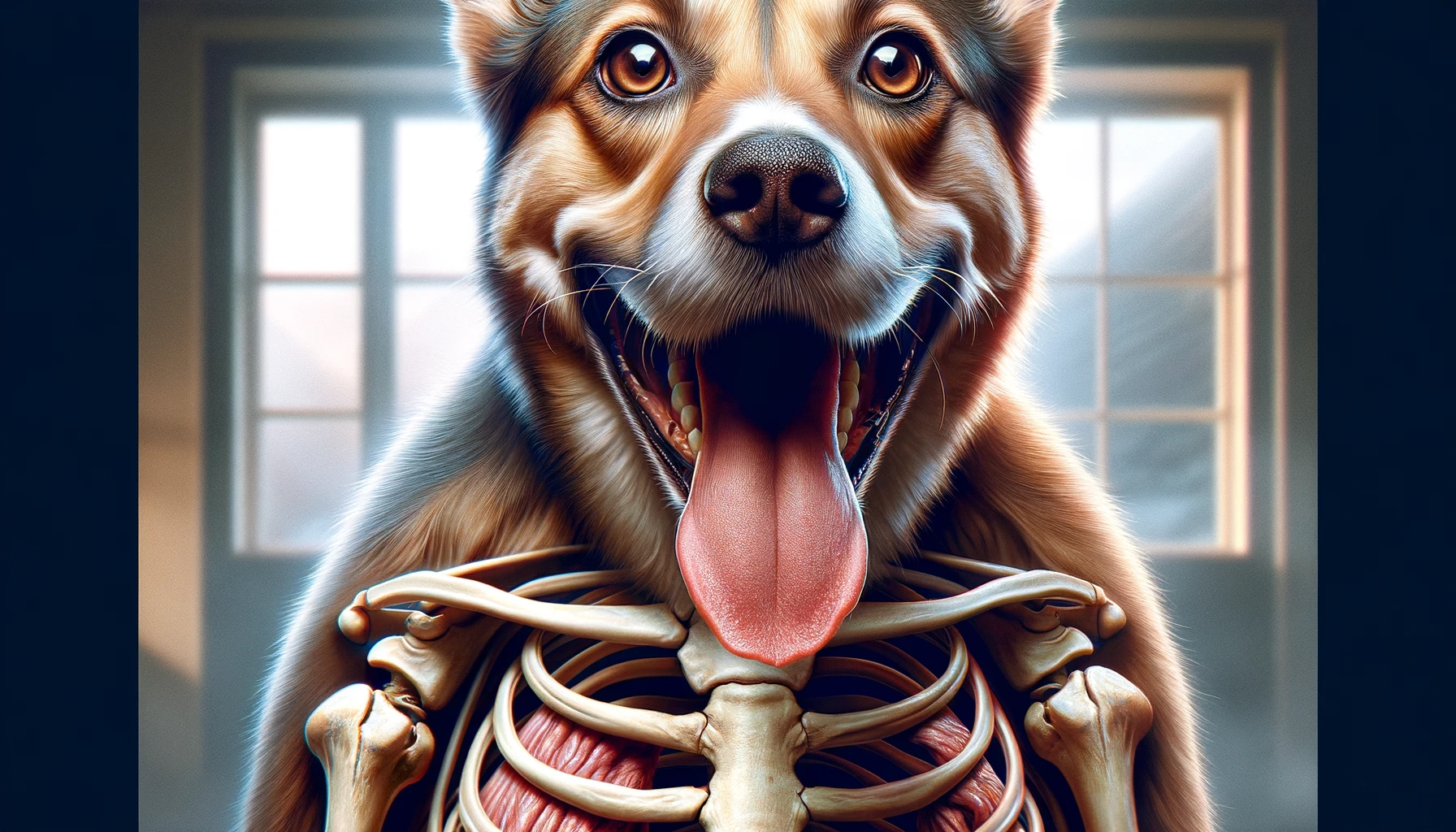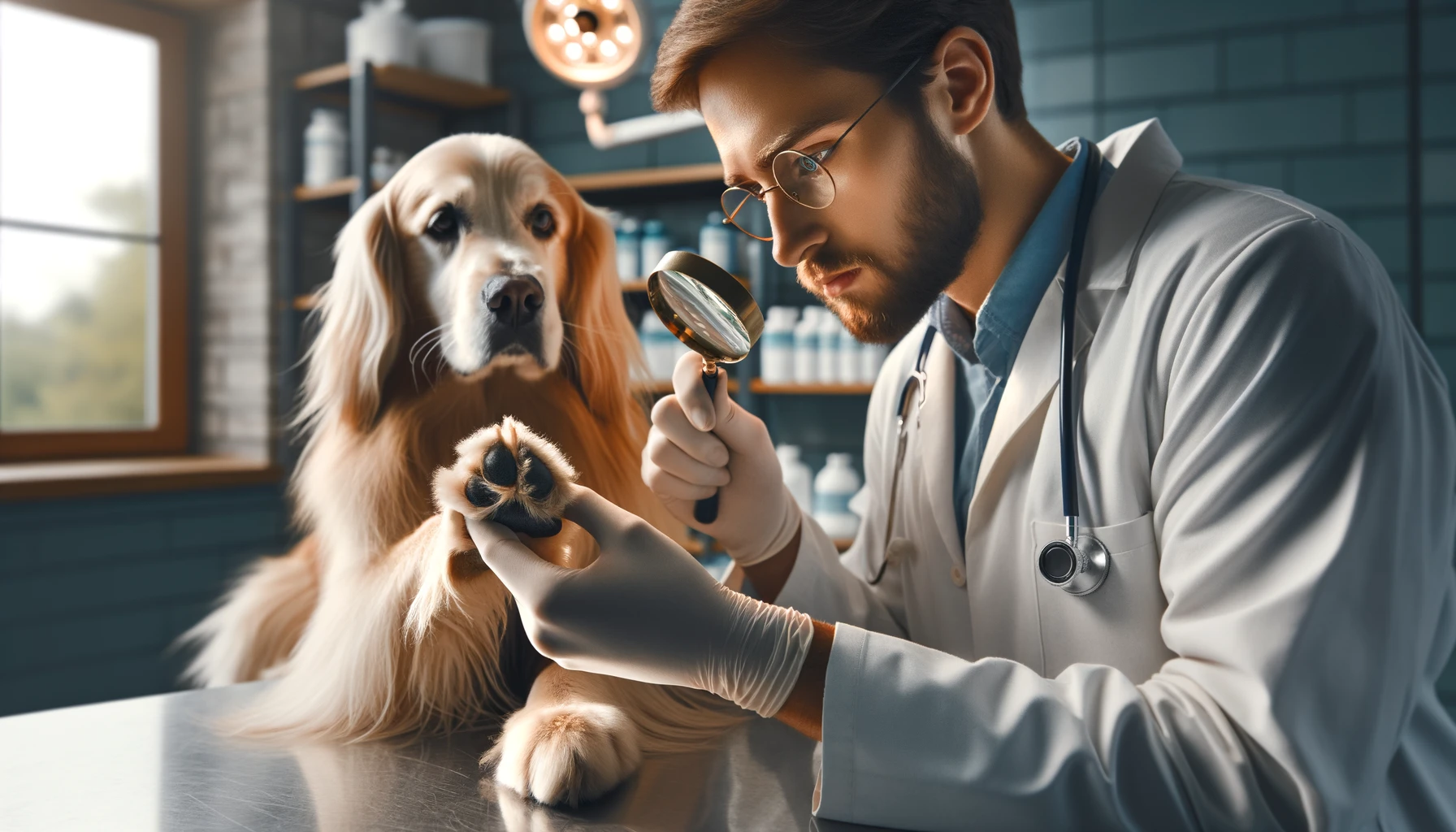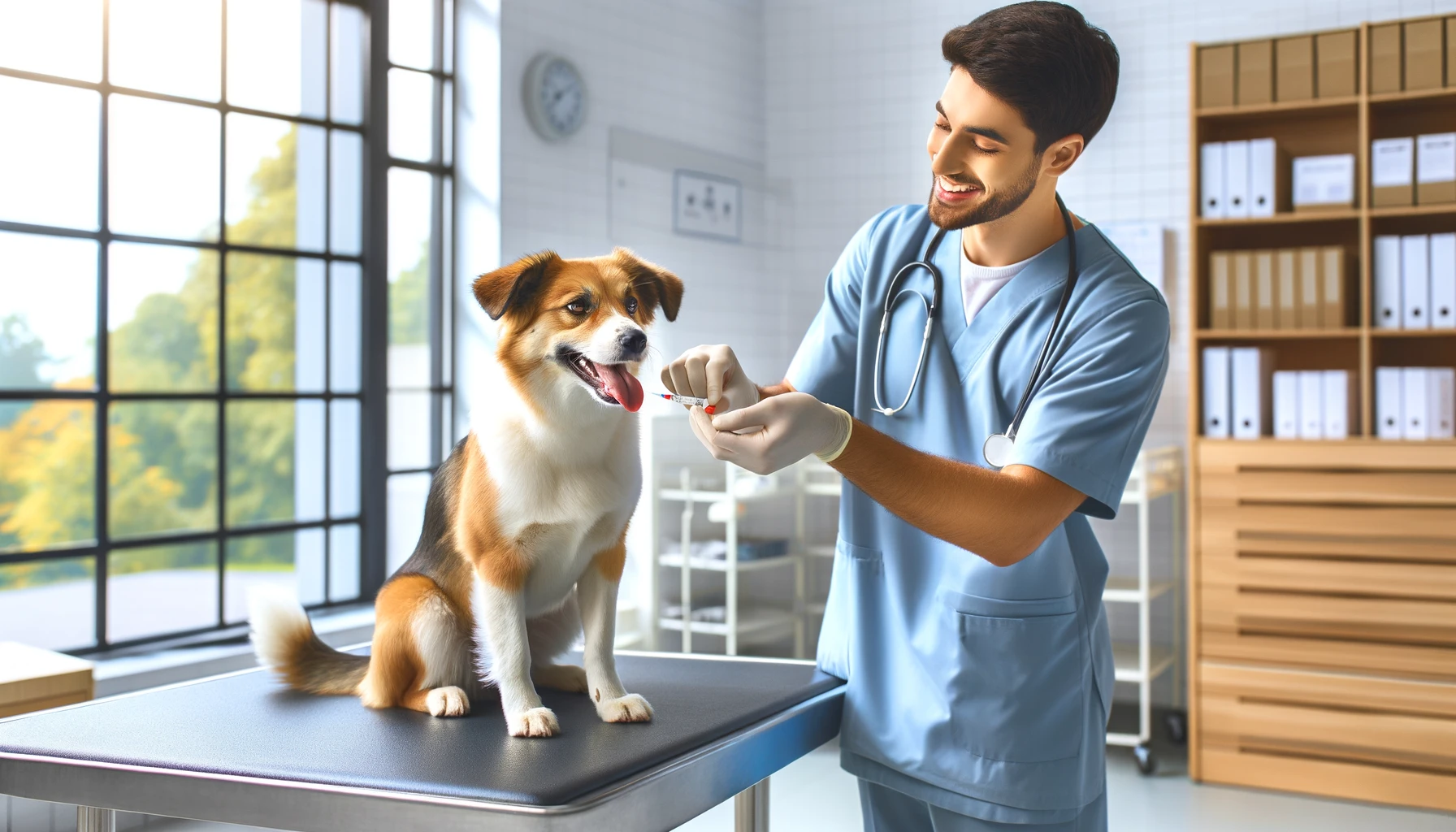Are you curious about the secrets behind your dog's health and well-being?
In this article, we'll delve into the origins of dog health, exploring the key factors that contribute to their overall well-being.
Discover the importance of:
- Exercise and physical activity
- Proper nutrition and feeding
- Regular veterinary check-ups
- Vaccinations and preventive care
- Dental health and hygiene
- Mental stimulation and enrichment
- Parasite control and prevention
- Grooming and hygiene practices.
Uncover the knowledge to ensure your furry friend thrives.
Key Takeaways
- Regular exercise is essential for maintaining a healthy weight, improving cardiovascular health, reducing stress and anxiety, and enhancing cognitive function.
- Providing a balanced diet with high-quality dog food, managing food allergies, and avoiding excessive fillers and artificial additives is crucial for proper nutrition and feeding.
- Regular veterinary check-ups are important for monitoring overall health, addressing behavioral concerns, and ensuring proper vaccination status and preventive care.
- Dental care, including regular brushing and professional cleanings, is crucial for maintaining oral health and overall well-being in dogs.
Exercise and Physical Activity
To ensure your dog's optimal health and well-being, regular exercise and physical activity are essential. Exercise provides a wide range of benefits for dogs, both physically and mentally.
Engaging in regular exercise routines helps to maintain a healthy weight and prevent obesity, which can lead to various health issues such as joint problems and heart disease. Furthermore, exercise helps to strengthen muscles and improve cardiovascular health. It also promotes healthy digestion and regulates bowel movements.
In addition to the physical benefits, exercise is crucial for your dog's mental well-being. It helps to reduce stress and anxiety, promotes better sleep, and enhances cognitive function. Dogs that engage in regular exercise are often more alert, focused, and responsive.
When designing exercise routines for your dog, it's important to consider their age, breed, and overall health condition. Incorporating a variety of activities such as brisk walks, jogging, playing fetch, and interactive toys can help keep your dog engaged and motivated. Remember to start slowly and gradually increase the intensity and duration of the exercise sessions.
Always monitor your dog's behavior and consult with your veterinarian if you have any concerns. Regular exercise can greatly contribute to your dog's overall health and well-being, so make it a priority in their daily routine.
Proper Nutrition and Feeding
Ensure your dog's optimal health and well-being by providing proper nutrition and feeding.
The food you give your dog plays a vital role in their overall health, as it provides the necessary nutrients for growth, energy, and maintaining a strong immune system. To ensure a balanced diet, consider the following:
- Quality dog food: Choose a high-quality dog food that meets the nutritional requirements established by reputable organizations such as the Association of American Feed Control Officials (AAFCO). Look for products that contain real meat as the main ingredient and avoid those with excessive fillers or artificial additives, which can trigger allergies in some dogs.
- Allergy management: Just like humans, dogs can develop allergies to certain foods. Common allergenic ingredients include beef, chicken, dairy, wheat, and soy. If your dog exhibits signs of food allergies such as itching, gastrointestinal upset, or ear infections, consult with your veterinarian to identify the allergen and find an appropriate hypoallergenic diet.
- Dietary supplements: In some cases, dietary supplements may be beneficial for your dog's health. Omega-3 fatty acids, for example, can support healthy skin and coat, while glucosamine and chondroitin can promote joint health. However, it's important to consult with your veterinarian before introducing any supplements to ensure they're safe and appropriate for your dog's individual needs.
Regular Veterinary Check-ups
Schedule regular veterinary check-ups to ensure your dog's ongoing health and well-being. Just like humans, dogs require regular medical examinations to monitor their overall health and detect any potential issues early on. These check-ups are vital in maintaining your dog's optimal physical and mental condition.
During these veterinary visits, your dog's exercise and mental health can be assessed. The veterinarian will evaluate your dog's activity levels, ensuring they're receiving enough exercise to maintain a healthy weight and muscle tone. Regular exercise isn't only important for physical fitness but also plays a crucial role in promoting mental well-being and reducing behavioral problems.
Moreover, veterinary check-ups also provide an opportunity for socialization and behavior assessment. Dogs are social animals and it's important to ensure they're comfortable and well-behaved in various social settings. The veterinarian can offer guidance on proper socialization techniques and address any behavioral concerns that may arise.
By scheduling regular veterinary check-ups, you're taking a proactive approach to your dog's health and well-being. These visits allow for early detection and intervention of any potential health issues, ensuring that your furry friend enjoys a long and happy life.
Vaccinations and Preventive Care
To ensure the health and well-being of your dog, vaccinations and preventive care play a crucial role.
Vaccines are highly effective in preventing infectious diseases and can provide long-lasting immunity. However, it's important to remember that vaccine effectiveness and duration may vary depending on the specific vaccine and your dog's individual immune response.
Regular veterinary check-ups are essential to monitor your dog's vaccination status, assess their overall health, and identify any potential health issues early on.
Vaccine Effectiveness and Duration
When considering the health and well-being of your dog, it's important to understand the effectiveness and duration of vaccines and preventive care.
Vaccines are crucial in preventing infectious diseases and protecting your dog's health. Vaccine efficacy refers to how well a vaccine works in preventing a specific disease. It's determined through rigorous testing and research.
Booster shots are additional doses of a vaccine that are given to ensure long-term protection. They help to strengthen your dog's immune response and maintain immunity over time.
The duration of vaccine effectiveness varies depending on the specific vaccine and disease. Some vaccines provide lifelong immunity, while others may require periodic booster shots.
It's essential to follow your veterinarian's recommended vaccine schedule to ensure your dog's optimal protection against infectious diseases.
Importance of Regular Check-Ups
Regular check-ups for your dog, including vaccinations and preventive care, are essential for maintaining their health and well-being.
Dental hygiene is a crucial aspect of their overall health, as dental disease can lead to pain, infection, and even systemic health issues. Regular dental cleanings can prevent tartar buildup, gum disease, and tooth loss.
Additionally, mental stimulation plays a significant role in your dog's well-being. Engaging activities like puzzle toys, obedience training, and interactive play not only keep your dog mentally stimulated but also help prevent behavioral problems that can arise from boredom and lack of mental stimulation.
Dental Health and Hygiene
When it comes to your dog's overall health and well-being, dental care plays a crucial role.
Just like humans, dogs can develop oral health issues such as gum disease, tooth decay, and bad breath.
Importance of Dental Care
To maintain optimal dental health and hygiene for your dog, it's crucial to actively prioritize their dental care. Proper dental care is essential for preventing tooth decay and ensuring your dog's overall well-being. Here are three reasons why dental care is important for your furry friend:
- Preventing tooth decay: Just like humans, dogs can also develop dental issues such as cavities and tooth decay. Regular brushing and dental cleanings can help prevent the buildup of plaque and tartar, which are major contributors to tooth decay.
- Importance of professional cleanings: While regular brushing at home is important, professional dental cleanings by a veterinarian are necessary to remove stubborn plaque and tartar that can't be removed by brushing alone. These cleanings also allow for a thorough examination of your dog's oral health.
- Overall health benefits: Poor dental hygiene can lead to various health problems in dogs, including gum disease, bad breath, and even systemic infections. By prioritizing your dog's dental care, you can help prevent these issues and promote their overall well-being.
Preventing Oral Health Issues
Maintain optimal oral health for your dog by actively prioritizing their dental care. Preventing gum disease is essential for your furry friend's overall health and well-being. Poor dental hygiene can lead to a range of oral health issues, including gum inflammation, tooth decay, and even tooth loss.
To prevent these problems, it's important to establish a regular dental care routine for your dog. Here are some dental hygiene tips to follow:
- Brush your dog's teeth regularly using a dog-specific toothbrush and toothpaste.
- Provide dental chews or toys that help to remove plaque and tartar buildup.
- Ensure your dog has a balanced diet that promotes good oral health.
- Schedule regular professional dental cleanings with your veterinarian.
Brushing Techniques for Dogs
To effectively maintain your dog's oral health, use proper brushing techniques to ensure a thorough clean. Regular brushing is an essential part of dog grooming and plays a vital role in maintaining their overall well-being. Here are some evidence-based and scientifically proven brushing techniques to keep your dog's dental health in check:
- Start by choosing a toothbrush and toothpaste specifically designed for dogs. The toothbrush should have soft bristles and a long handle for easy maneuvering.
- Gently lift your dog's lips and brush the outer surfaces of their teeth using circular motions. Pay special attention to the gum line as it's prone to plaque buildup.
- Next, brush the inner surfaces of your dog's teeth in the same circular motion.
- Finally, brush the chewing surfaces to remove any food particles or debris.
Mental Stimulation and Enrichment
For optimal mental stimulation and enrichment, provide your dog with a variety of engaging activities and interactive toys. Mental stimulation is crucial for a dog's overall well-being as it helps prevent boredom, reduces anxiety, and promotes proper cognitive development. Enrichment activities challenge your dog's problem-solving skills and keep their brains active and engaged.
One effective way to provide mental stimulation is through interactive toys. These toys are designed to challenge your dog's intelligence and problem-solving abilities. Puzzle toys, for example, require your dog to figure out how to access treats or toys hidden inside. This not only provides mental stimulation but also encourages physical activity.
Engaging activities are another important aspect of mental enrichment. Taking your dog for regular walks in different environments allows them to explore new scents and sights, stimulating their senses and providing mental stimulation. Playing games such as fetch or hide-and-seek can also provide mental stimulation while strengthening the bond between you and your dog.
In addition to toys and activities, training sessions can be highly beneficial for mental stimulation. Teaching your dog new commands or tricks challenges their cognitive abilities and keeps their minds sharp. This also provides an opportunity for positive reinforcement, which further enhances their overall well-being.
Parasite Control and Prevention
Ensure the health and well-being of your dog by actively preventing and controlling parasites. Parasites can cause a range of health issues in dogs, including skin irritations, infections, and even life-threatening diseases. Implementing a comprehensive parasite prevention and flea control program is crucial for maintaining your dog's optimal health. Here are three key strategies to consider:
- Regular Veterinary Check-ups: Schedule regular visits to your veterinarian to ensure your dog's overall health and to discuss appropriate parasite prevention measures. Your vet will conduct thorough examinations and recommend specific products based on your dog's individual needs.
- Flea Control Products: Fleas are one of the most common parasites affecting dogs. Use veterinarian-approved flea control products to prevent infestations. These products come in various forms, including topical treatments, oral medications, and collars. Remember to follow the instructions carefully and administer the appropriate dosage based on your dog's weight.
- Environmental Control: Fleas and other parasites can lurk in your dog's surrounding environment. Regularly clean and vacuum your home, paying close attention to areas where your dog spends most of their time. Wash your dog's bedding regularly to eliminate any potential parasites or eggs. Additionally, consider using flea control products in your yard to minimize the risk of infestation.
Grooming and Hygiene Practices
Maintaining regular grooming and hygiene practices is essential for keeping your dog healthy and free from parasites.
Dog bathing is an important aspect of grooming that helps to remove dirt, oils, and allergens from your dog's coat. It also helps to prevent skin infections and keeps your dog smelling fresh. When bathing your dog, it's crucial to use a mild dog shampoo that's specifically formulated for their skin pH. This will prevent any irritation or dryness.
Additionally, regular coat maintenance is necessary to keep your dog's fur healthy and tangle-free. Brushing your dog's coat removes loose hair, prevents matting, and stimulates blood circulation. It also allows you to check for any skin abnormalities, such as ticks or fleas. It's recommended to choose a brush that's suitable for your dog's coat type, such as a slicker brush for long-haired breeds or a bristle brush for short-haired breeds.
Frequently Asked Questions
How Can I Prevent My Dog From Getting Overweight or Obese?
To prevent your dog from getting overweight or obese, focus on dog weight management. Provide a balanced diet, control portion sizes, and ensure regular exercise. Avoid excessive treats and monitor their body condition to maintain a healthy weight.
What Are Some Common Signs of Dental Problems in Dogs?
Regular dental care is crucial for your dog's overall health. Look out for signs of dental problems such as bad breath, swollen gums, and difficulty chewing. Addressing these issues promptly can prevent further complications.
What Are the Most Important Vaccinations for Dogs and When Should They Be Administered?
The most important vaccinations for dogs are determined by their age and lifestyle. Following a proper dog vaccination schedule is crucial for their well-being. Early vaccinations provide essential protection against common diseases.
How Often Should I Take My Dog to the Veterinarian for a Check-Up?
You should take your dog to the veterinarian for a check-up at least once a year. Regular vet check-ups are important for monitoring your dog's health, updating their vaccination schedule, and detecting any potential health issues early.
Are There Any Specific Grooming Practices or Products That Can Help Prevent Skin Issues in Dogs?
To prevent skin issues in dogs, use proper grooming techniques such as regular brushing, bathing with gentle products, and trimming their fur. Additionally, consider natural remedies like coconut oil or oatmeal-based shampoos for soothing and nourishing their skin.
Conclusion
In conclusion, ensuring the health and well-being of dogs requires a comprehensive approach that includes regular exercise, proper nutrition, veterinary check-ups, vaccinations, dental care, mental stimulation, parasite control, and grooming practices.
By following these evidence-based guidelines, dog owners can help promote their pets' overall health and longevity.
Remember, a healthy dog is a happy dog, and by prioritizing their well-being, we can enhance the bond between humans and their canine companions.






